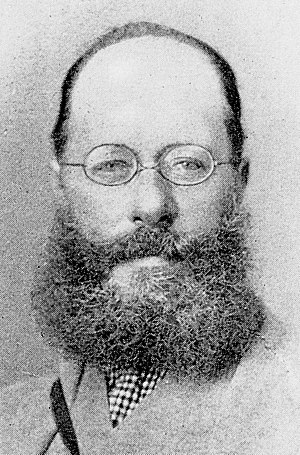
Edward Lear
Edward Lear (May 12, 1812, Holloway - January 29, 1888, San Remo) was an English artist, illustrator, musician, writer, and poet, currently known mainly for his literary nonsense in poetry and prose and especially his limericks, form which he popularized. His main areas of work as an artist were threefold: as a draftsman, busy illustrating birds and animals; making color drawings during his travels, which he redid later, sometimes as sheets for his travel books; as (junior) poet illustrator of Lord Tennyson Alfred. As an author, he is best known for his popular, meaningless collections of poems, songs, short stories, botanical drawings, recipes, and alphabets. He also wrote and published twelve musical productions of Tennyson's poetry. Lear was born into a middle-class family in Holloway, North London, the penultimate of 21 children (and the youngest to survive) from Ann Clark Scherrett and Jeremy Lear, a stockbroker who had previously worked in a family-owned sugar refinery. He was raised by his older sister named Anne, 21 years older than him. Jeremiah Lear defaulted on the London Stock Exchange as a result of economic turmoil after the Napoleonic Wars; due to the more limited financial resources of the family, Lear and his sister were forced to leave the Lodge of Bowmans' family home and live together when he was four years old. Anne became obsessed with Edward and continued to act as a mother for him until his death when he was almost 50 years old. Lear suffered from health problems throughout his life. From the age of six, he often suffered from epileptic seizures, as well as bronchitis, asthma, and subsequently - partial blindness. Lear survived his first seizure at a fair near Highgate with his father. The event frightened and embarrassed him. Lear felt guilty and ashamed of his epileptic state. His adult diaries show that he always felt the onset of the seizure on time to get himself out of sight. When Lear was about seven years old, he began to show signs of depression, possibly due to the instability of his childhood. He suffered from periods of severe melancholy, which he called "painful."

